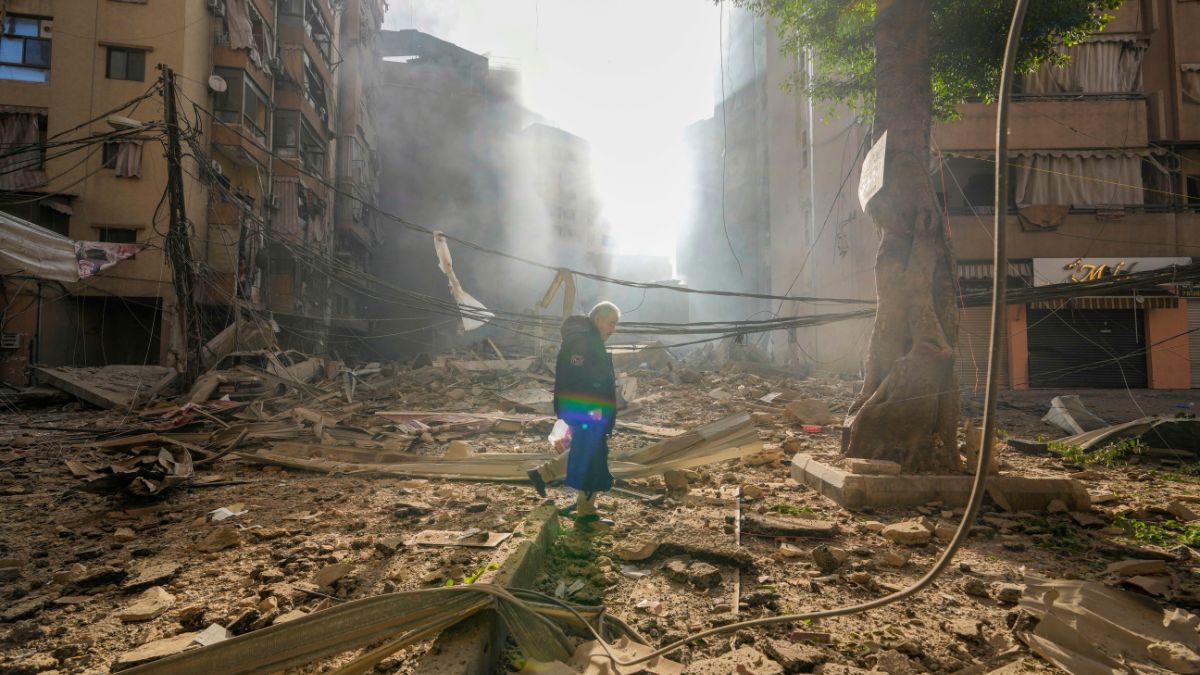A year of conflict between Israel and Hamas has resulted in a “devastating impact on the economy” in the occupied West Bank and Gaza, the IMF said Thursday, including a nearly 90 percent drop in Gaza’s GDP.
“Preliminary official estimates indicate an 86 percent decline in GDP in the first half of 2024” in Gaza, said International Monetary Fund communications chief Julie Kozack.
She added that Gaza’s “civilian population faces dire socioeconomic conditions, a humanitarian crisis and insufficient aid delivery.”
In the West Bank, “already grim prospects have further deteriorated, and preliminary official data indicate a 25 percent decline in GDP in the first half of 2024,” Kozack told reporters at a regular briefing.
Impact on global economy
Rising tensions in the Middle East add new uncertainties for the global economy even as policymakers start to congratulate themselves on having steered it out of a bout of high inflation without triggering recession.
Very little beyond the immediate region, with the main effects limited to financial markets as investors hedge their portfolios with safe-haven assets. The U.S. dollar has been a beneficiary since Iran’s ballistic missile attack on Israel: the dollar index, which measures the U.S. currency against the euro, yen and four other top currencies, is trading around three-week peaks.
Oil prices rose around 2% on Thursday on concerns a wider conflict could disrupt crude oil flows from the region - for example if Israel chose to target Iranian oil infrastructure which in turn could trigger retaliation from Iran.
Impact Shorts
More ShortsBut it is not clear that this will translate into the kind of sustained, sharper rises that motorists start to notice at the fuel pump. Analysts point out that the United States has high levels of crude oil inventories while OPEC producing nations have enough spare capacity to smooth out the impact of disruptions, at least in the short term.
Israeli economy also hit
Israel’s economy has also been battered by the war, with three main rating agencies downgrading its debt.
After shrinking by 21 percent in the fourth quarter of 2023, Israeli GDP rebounded by 14 percent in the first three months this year, official data showed.
But growth turned sluggish in the second quarter at 0.7 percent.
Kozack also noted that “in Lebanon, the recent intensification of the conflict is exacerbating the country’s already fragile macroeconomic and social situation.”
“We’re closely monitoring the situation, and this is a situation of great concern and very high uncertainty,” she added.
Israel and Hezbollah have traded fire across the Lebanon border almost daily since the day after Hamas’ cross-border attack on Oct. 7, 2023, which killed 1,200 Israelis and took 250 others hostage. Israel declared war on the militant group in the Gaza Strip in response.
More than 41,000 Palestinians have been killed in the territory, and just over half the dead have been women and children, according to local health officials. Nearly 2,000 people have been killed in Lebanon, according to the Lebanese Health Ministry.
With inputs from agencies.


)

)
)
)
)
)
)
)
)



